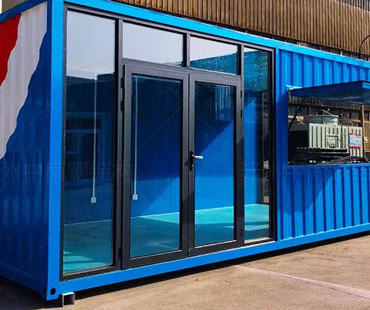The global container market plays a vital role in the modern economy, facilitating international trade and enabling the seamless movement of goods across borders. As globalization continues to shape various industries, understanding the dynamics of the container market is essential for stakeholders ranging from shipping companies to manufacturers and policymakers.
Trends in the Global Container Market
1.Increased Demand for E-commerce
The rise of e-commerce has significantly influenced the container market. As online shopping continues to grow, the demand for containerized shipping has surged. Consumers expect faster delivery times, prompting logistics companies to optimize their supply chains. This shift has led to an increase in the use of smaller containers and innovative shipping methods to meet consumer needs.
2.Technological Advancements
The integration of technology is transforming the container shipping industry. Innovations such as the Internet of Things (IoT), artificial intelligence (AI), and blockchain are enhancing operational efficiency, improving tracking and visibility, and streamlining processes. For example, IoT sensors can monitor container conditions in real-time, ensuring that perishable goods are transported under optimal conditions.
3.Sustainability Initiatives
Environmental concerns are driving the container market toward more sustainable practices. Shipping companies are increasingly investing in eco-friendly technologies, such as energy-efficient vessels and alternative fuels like LNG (liquefied natural gas) and hydrogen. The International Maritime Organization (IMO) has set ambitious targets for reducing greenhouse gas emissions, prompting the industry to adopt greener practices.
4.Regional Trade Agreements
The establishment of various regional trade agreements is reshaping trade flows and container shipping routes. Agreements such as the Regional Comprehensive Economic Partnership (RCEP) and the United States-Mexico-Canada Agreement (USMCA) are facilitating trade between member countries, impacting container demand and logistics strategies.

Challenges Facing the Container Market
1.Port Congestion and Infrastructure Limitations
Port congestion has become a significant challenge in recent years, exacerbated by the COVID-19 pandemic. Delays in unloading and loading containers can disrupt supply chains and increase shipping costs. Aging infrastructure in many ports also poses limitations, making it crucial for governments to invest in modernization to handle growing container volumes.
2.Geopolitical Tensions
Geopolitical issues, such as trade wars and sanctions, can create uncertainty in the container market. Changes in trade policies can affect shipping routes and demand for containers, forcing companies to adapt quickly to new regulations and market conditions.
3.Rising Shipping Costs
Fluctuating fuel prices, container shortages, and increased labor costs are contributing to rising shipping expenses. These costs can impact the profitability of shipping companies and, ultimately, the prices consumers pay for goods. Companies must find ways to mitigate these costs while maintaining service quality.
4.Cybersecurity Threats
As the industry becomes more reliant on digital technology, the risk of cyberattacks increases. Protecting sensitive data and ensuring the security of operational systems are crucial for maintaining trust and efficiency in the container market.
Opportunities in the Global Container Market
1.Expansion in Emerging Markets
Emerging markets in Asia, Africa, and Latin America present significant growth opportunities for the container market. Rapid urbanization and increasing consumer spending in these regions are driving demand for imported goods, creating a need for efficient container shipping solutions.
2.Investment in Digital Solutions
Companies that invest in digital solutions such as predictive analytics, automation, and advanced tracking systems can gain a competitive edge. By leveraging data, companies can optimize their operations, reduce costs, and enhance customer satisfaction.
3.Collaboration and Partnerships
Collaborating with other stakeholders in the supply chain can lead to improved efficiency and innovation. Strategic partnerships between shipping companies, technology providers, and logistics firms can create synergies that enhance service offerings and reduce costs.
4.Sustainable Practices as a Selling Point
Companies that adopt sustainable practices can differentiate themselves in the marketplace. As consumers become more environmentally conscious, there is a growing demand for products shipped using eco-friendly methods. Emphasizing sustainability can attract new customers and improve brand loyalty.
The global container market is at a critical juncture, facing both significant challenges and exciting opportunities. As the industry adapts to changing consumer behaviors, technological advancements, and environmental pressures, stakeholders must remain agile and forward-thinking. By embracing innovation, investing in sustainability, and fostering collaboration, companies can thrive in this dynamic market landscape and contribute to the continued growth of global trade.


